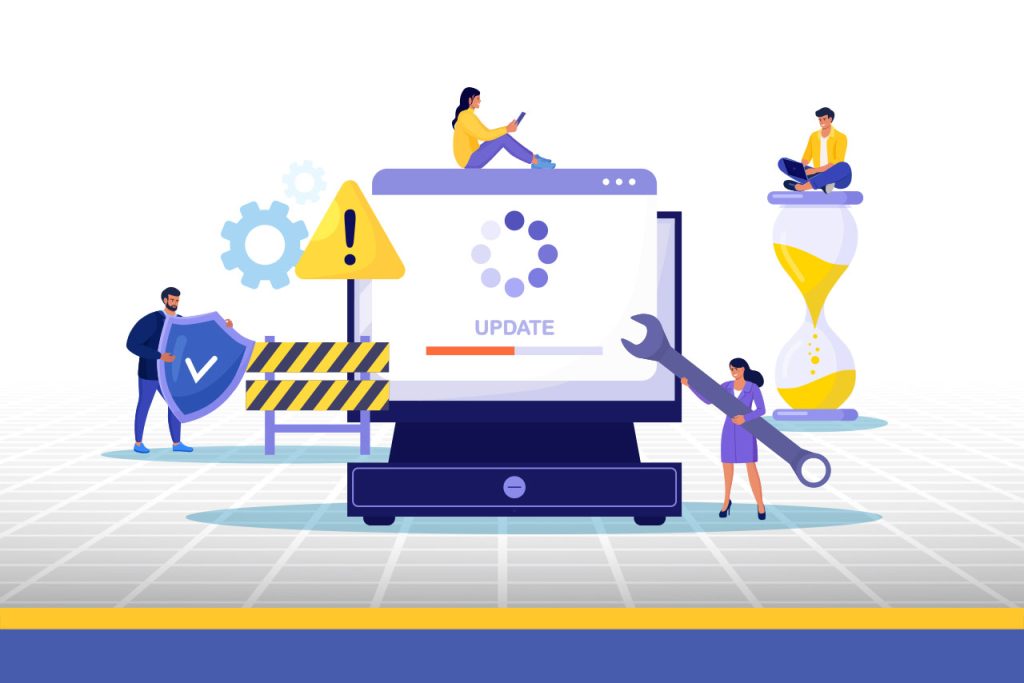What Sets a Good POS System Apart? Key Criteria to Consider

A point-of-sale (POS) system is one of the most critical tools in modern businesses, especially in retail, hospitality, and service industries. It is far more than just a tool for processing transactions—it’s a central hub that can streamline operations, improve customer experiences, and provide valuable insights into your business performance. However, with so many options available, choosing the right POS system can be overwhelming. Knowing the key criteria that set a good POS system apart is essential to ensure smooth business operations and long-term success. Below are the most important factors to consider when selecting a POS system for your business.
1. Ease of Use and Intuitive Interface
A POS system should simplify tasks, not complicate them. Ease of use is one of the primary criteria to look for. If the interface is too complex or the navigation is unclear, it will take your staff longer to process transactions, causing delays and frustration. The best POS systems have user-friendly interfaces, making them easy to learn and operate for staff at all levels of technical proficiency. A good POS system minimizes the learning curve, reducing the amount of time needed for training, which is especially important for businesses with high staff turnover.
2. Inventory Management Capabilities
For any business dealing with physical products, inventory management is a crucial function. A good POS system should have robust inventory tracking features that allow you to monitor stock levels in real time, automate reorders, and track sales trends. This ensures that you never run out of popular products or overstock items that don’t sell. Some advanced POS systems can even alert you when stock levels are low or automatically generate purchase orders. Having a POS system with integrated inventory management capabilities not only improves operational efficiency but also reduces the risk of human error.
3. Seamless Integration with Other Business Tools
A POS system should not operate in isolation. For a business to run smoothly, it’s essential that your POS system integrates seamlessly with other key tools such as accounting software, customer relationship management (CRM) platforms, and e-commerce websites. This allows you to centralize your business data and access it from one place, making it easier to generate reports, manage finances, and monitor customer interactions. Integration with loyalty programs and marketing platforms can also help you engage customers and increase sales.
4. Flexible Payment Processing Options
A good POS system should offer flexibility in terms of payment processing. Modern consumers expect to pay through a variety of methods, including credit and debit cards, mobile payments, and even cryptocurrencies in some cases. By offering multiple payment options, you improve customer satisfaction and make transactions smoother. Additionally, the system should be secure and PCI-compliant to protect your customers’ sensitive data and maintain your business’s reputation.
Also read : POS Systems: The Key to Smarter, Faster Transactions
5. Real-Time Reporting and Analytics
Data is crucial for making informed business decisions. A high-quality POS system will offer robust reporting and analytics features that give you real-time insights into your sales, inventory, employee performance, and customer behavior. These reports can help you identify trends, forecast demand, and make data-driven decisions that optimize your business operations. For example, by analyzing sales data, you can determine which products are your top sellers and which items may need promotional efforts to boost sales.
6. Mobile Accessibility
In today’s fast-paced business environment, mobility is key. A POS system with mobile capabilities allows you to run your business on the go. This is particularly beneficial for businesses like food trucks, pop-up shops, or service-based companies that don’t operate from a fixed location. Mobile POS systems give you the flexibility to accept payments and manage transactions anywhere, offering a seamless experience for both you and your customers.
7. Customer Relationship Management (CRM) Features
A good POS system should come with integrated CRM features that allow you to build stronger relationships with your customers. Tracking customer purchase histories, preferences, and feedback enables personalized marketing efforts, better customer service, and tailored loyalty programs. For example, many POS systems can be set up to automatically send special offers to customers based on their past purchases, helping you boost retention and engagement.
8. Scalability
As your business grows, your POS system should be able to grow with you. Scalability is an important consideration when choosing a POS system. Whether you’re adding new locations, expanding product lines, or increasing staff, the system should be flexible enough to adapt to changes in your business without causing disruptions. Look for a system that can handle multiple registers, locations, and a growing customer base without a significant upgrade or the need to switch to a new platform entirely.
9. Security Features
Security should be a top priority when choosing a POS system. The system you select must offer encryption, tokenization, and regular security updates to protect both your business and your customers’ data from breaches and fraud. Features like user access controls, which restrict who can access sensitive information or perform certain actions, are also important. Additionally, make sure the POS system complies with industry security standards such as PCI-DSS.
10. Reliable Customer Support
Even the best POS system may experience issues, which makes reliable customer support vital. Whether it’s a technical glitch or a question about functionality, prompt and effective support can save you time and prevent lost sales. When evaluating a POS system, consider the availability of customer support, whether it’s 24/7, and what channels (phone, email, chat) are offered.
Conclusion
A POS system is the backbone of many businesses, playing a critical role in day-to-day operations. A good system is easy to use, integrates well with other tools, offers flexibility in payment options, and provides valuable insights through real-time reporting. When selecting a POS system, ensure it aligns with your business needs and has the scalability to grow alongside your company. With the right POS system in place, you can streamline operations, improve customer satisfaction, and set your business up for long-term success.
Visit our site at www.dibtech.com.au
Visit our YouTube channel for tutorials Dibtech






